Michael Ownby
Predicting Enemy's Actions Improves Commander Decision-Making
Jul 22, 2016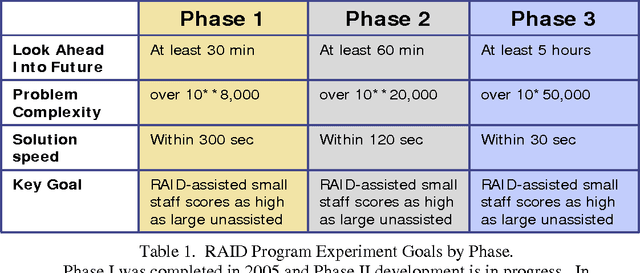
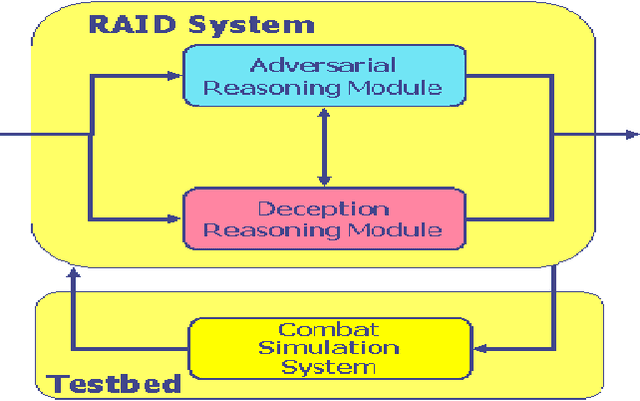
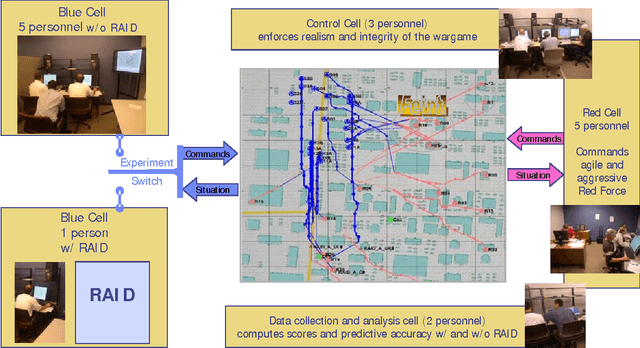
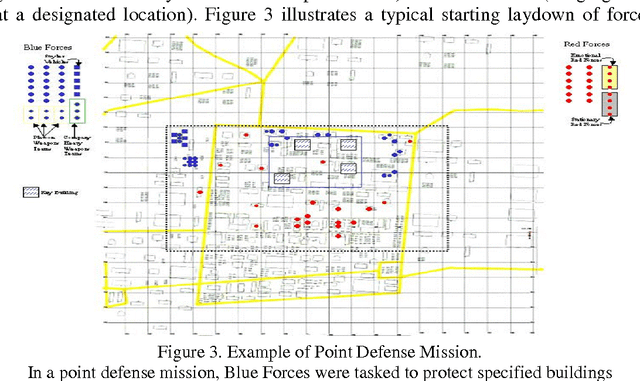
Abstract:The Defense Advanced Research Projects Agency (DARPA) Real-time Adversarial Intelligence and Decision-making (RAID) program is investigating the feasibility of "reading the mind of the enemy" - to estimate and anticipate, in real-time, the enemy's likely goals, deceptions, actions, movements and positions. This program focuses specifically on urban battles at echelons of battalion and below. The RAID program leverages approximate game-theoretic and deception-sensitive algorithms to provide real-time enemy estimates to a tactical commander. A key hypothesis of the program is that these predictions and recommendations will make the commander more effective, i.e. he should be able to achieve his operational goals safer, faster, and more efficiently. Realistic experimentation and evaluation drive the development process using human-in-the-loop wargames to compare humans and the RAID system. Two experiments were conducted in 2005 as part of Phase I to determine if the RAID software could make predictions and recommendations as effectively and accurately as a 4-person experienced staff. This report discusses the intriguing and encouraging results of these first two experiments conducted by the RAID program. It also provides details about the experiment environment and methodology that were used to demonstrate and prove the research goals.
Toward a Research Agenda in Adversarial Reasoning: Computational Approaches to Anticipating the Opponent's Intent and Actions
Dec 25, 2015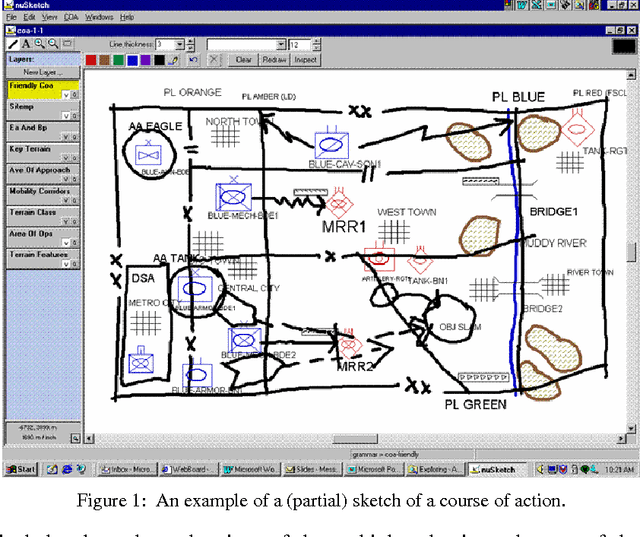
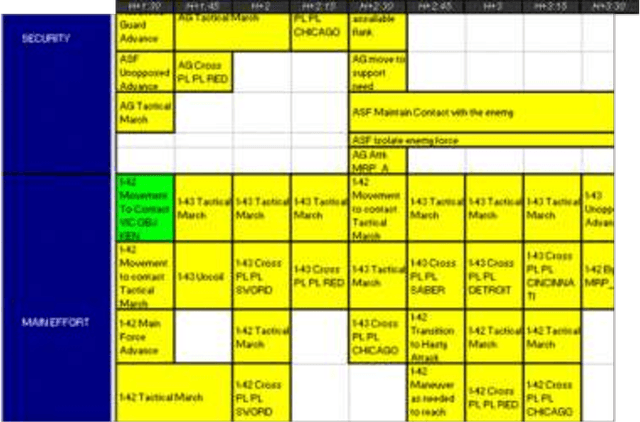
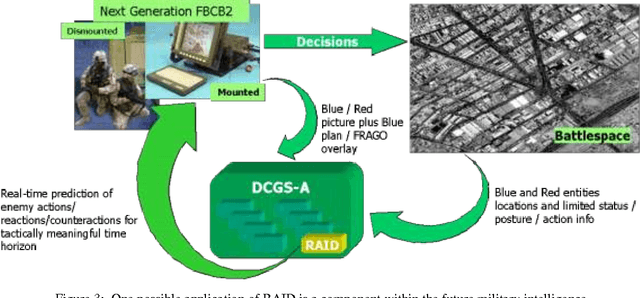
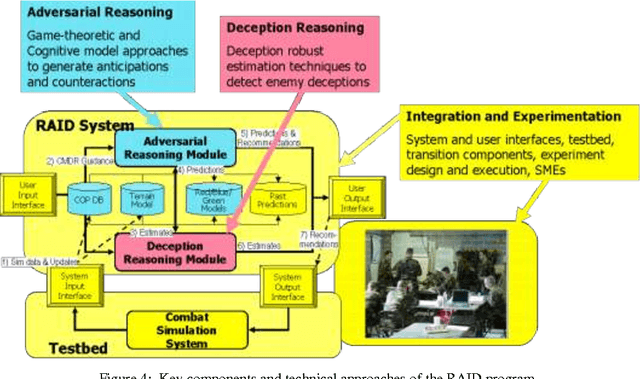
Abstract:This paper defines adversarial reasoning as computational approaches to inferring and anticipating an enemy's perceptions, intents and actions. It argues that adversarial reasoning transcends the boundaries of game theory and must also leverage such disciplines as cognitive modeling, control theory, AI planning and others. To illustrate the challenges of applying adversarial reasoning to real-world problems, the paper explores the lessons learned in the CADET - a battle planning system that focuses on brigade-level ground operations and involves adversarial reasoning. From this example of current capabilities, the paper proceeds to describe RAID - a DARPA program that aims to build capabilities in adversarial reasoning, and how such capabilities would address practical requirements in Defense and other application areas.
 Add to Chrome
Add to Chrome Add to Firefox
Add to Firefox Add to Edge
Add to Edge